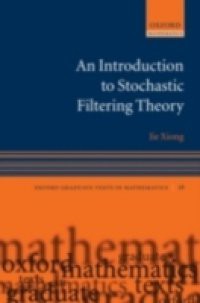Stochastic Filtering Theory uses probability tools to estimate unobservable stochastic processes that arise in many applied fields including communication, target-tracking, and mathematical finance. As a topic, Stochastic Filtering Theory has progressed rapidly in recent years. For example, the (branching) particle system representation of the optimal filter has been extensively studied to seek more effective numerical approximations of the optimal filter; the stability of the filter with "incorrect" initial state, as well as the long-term behavior of the optimal filter, has attracted the attention of many researchers; and although still in its infancy, the study of singular filteringmodels has yielded exciting results. In this text, Jie Xiong introduces the reader to the basics of Stochastic Filtering Theory before covering these key recent advances. The text is written in a style suitable for graduates in mathematics and engineering with a background in basic probability.

